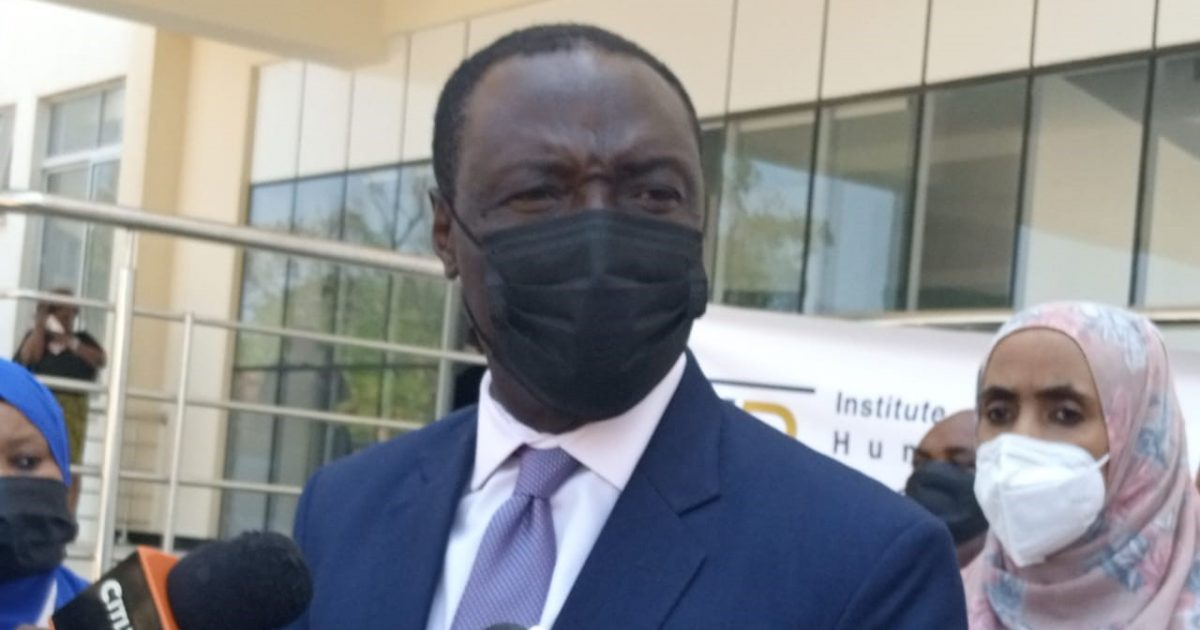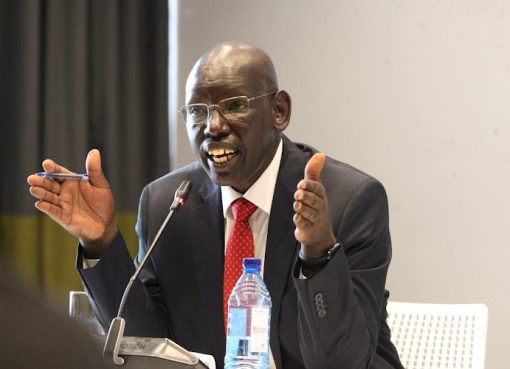The Kenya School of Government (KSG) has installed a software known as Psychometric Testing System (PTS) that measures the temperament of public service applicants.
Director General KSG Prof. Ludeki Chweya now proposes that PTS be used for assessment of a person’s temperament when conducting interviews for public service jobs.
“We feel that times have changed and the methods that we used to hire and recruit public servants in the past are no longer useful in giving us competent persons for the job under changed circumstances. It might not be enough to just produce a degree certificate and get the job but we might have to go into checking out other factors such as how quickly one gets angry, or how well they can work with others. We have to go into some of these finer details so that we get the right guy for the job,” said Prof. Chweya.
Speaking in Mombasa during the 3rd annual meeting of human resource practitioners within the public service, Prof. Chweya said that the institution is recommending the usage of the software to recruit men and women into civil service with not just academic qualifications but also interpersonal relations skills.
The symposium has been convened jointly by the Kenya School of Government (KSG) and Institute of Human Resource Management (IHRM).
One of the functions of KSG is to offer training as well as providing consultancy services to government institutions and agencies which entails hiring public officials including CEOs.
“We are normally asked to advertise, shortlist and interview, then hand over to the client government institutions, the list of candidates in order of performance and so, it is possible to assess an individual and their suitability for a job where temperament matters,” said the DG.
The team will discuss emerging issues and challenges concerning the management of human resources in the public sector and also the upcoming opportunities and how well they can be managed.
The DG also said that the challenge of Covid-19 pandemic which has shifted the workplace from the office to the home will be discussed. He noted that the pandemic has forced public servants to share the dining table between the family and work.
“Webinar is done on the dining table and the family members want to use the table. These are challenges that have exerted pressure on public servants and also introduced challenges on how we manage public servants who are away at home,” he observed.
He expressed concern on supervision of public officials working from home and how to deal with confidentiality of public documents that are transacted at home where there are other visitors who may have access to such documents.
Issues on mental health of public servants affecting their productivity, exposure to drug and substance abuse which affects their well-being and therefore their effectiveness has been mentioned in the discussion whereby the human resource agreed to find ways of cushioning those affected and providing counseling services.
On her part, Chief Administrative Secretary in the Ministry of Public Service and Gender Beatrice Elachi urged the human resource management to come together and talk on how they can appreciate diversity of public servants within the county governments and county assemblies.
Elachi said that now that the first ten years of devolution have lapsed, the Senate should think and restructure the workforce, by giving Kenyans an opportunity to work across the country so that there is no creation of cultural enclaves within the counties.
“I think it is best to sit down as a country and relook at the composition of the human resource in the county governments and county assemblies and ask ourselves, will we want Kenyans to work in one county they are employed to for the entire life. It’s public service, it’s for every Kenyan and everyone is allowed to live everywhere,” said Elachi.
In this regard, the Ministry of Public Service and Gender has requested KSG and IHRM to consult further and see if by March 2022, they can have another symposium to evaluate how, where public servants remaining after governor’s leave, how will they be absorbed in the new structure or/and will they face challenges with their pension and remunerations? She added.
By Chari Suche





